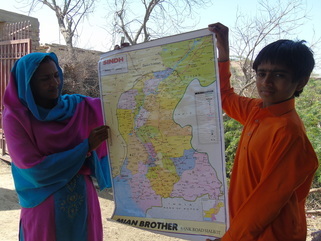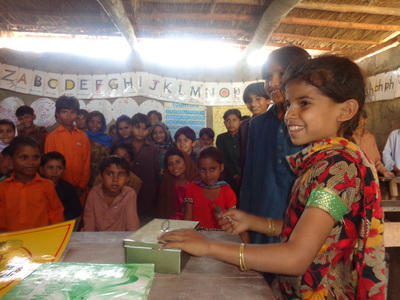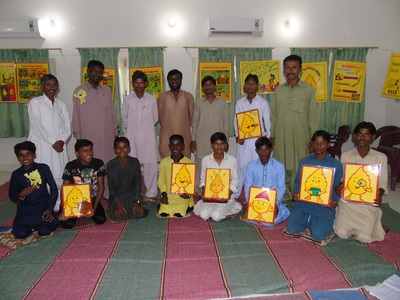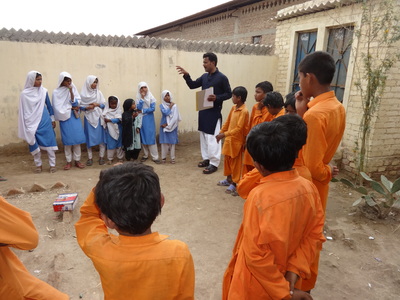In addition to the government curriculum (also the regular curriculum), PEP students are taught uniquely by Our Awareness Raising Curriculum known as the supplementary curriculum that involves subjects like, Peace education, Aflatoun and Aflateen (Social and Financial Education for children and teens), Community health and sanitation (CLTS), and Disaster Risk Reduction (DRR).
The supplementary curriculum helps children learn how to keep their environment clean and hygienic. It gives them a better understanding of themselves and their environment that enables them to coordinate, understand others, know how to work with others, and at the same time develop on their own. Children become advocates with each other to grow their community and just simply become more wiser.
The supplementary curriculum helps children learn how to keep their environment clean and hygienic. It gives them a better understanding of themselves and their environment that enables them to coordinate, understand others, know how to work with others, and at the same time develop on their own. Children become advocates with each other to grow their community and just simply become more wiser.
Peace Education
The PEP has partnerd with Church World Service to promote peace education among our students. Students learn how to create a peaceful environment in their villages through conversation techniques, realizing one another's unique aspects, and understanding the process of reconciliation. Our teachers receive training in providing peace education in the class room. In rural village areas, disagreements between communities often result in violence and a disruption of basic needs- like education! PEP strives to empower children to be advocates for peace by loving their neighbor.
Social And Financial Education (Aflatoun)
PEP uses the Aflatoun (Social and Financial Education) to provide children with social & financial education. Aflatoun provides children with the building blocks of life, encouraging them to save their resources and start social and financial micro enterprises. The children are empowered to make a positive change in their lives and in their communities and eventually break the cycle of poverty in which many find themselves. The goal of Aflatoun is to develop self-esteem, inform them of their rights, nurture decision-making skills and teach them to use money and resources wisely. Learn more
Social and Financial Education (Aflateen)
Aflateen is a branch of Aflatoun targeting teenagers and equipping them with the knowledge of markets that increasingly affect them as they become consumers, workers and producers, but also using the key Social and Financial Education resources from Aflatoun. The programme of Aflateen introduces rational and economic concepts to help children and the youth constitute better living standards. PEP is striving to equip the youth of rural Sindh with life skills that will empower them them to become economically successful and valuable citizens bearing purpose in life. Watch Video of a PEP Aflateen Student!
Community Led Total Sanitation (CLTS)
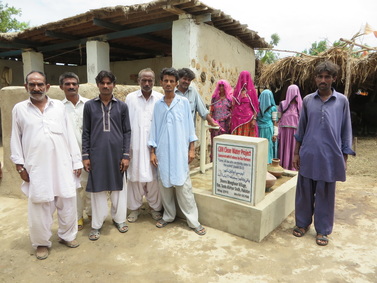
The villages PEP works alongside often face severe challenges in everyday health issues. PEP through the support of Christian Broadcasting Network (CBN) has installed a hand pump in each school for clean, drinking water and hand washing. Toilets and hand washing promote healthy living and reduce the likelihood that diseases will be spread! Using dramas, posters,community conversations, and classroom lessons, PEP hopes that children can live healthier lives.
Disaster Risk Reduction
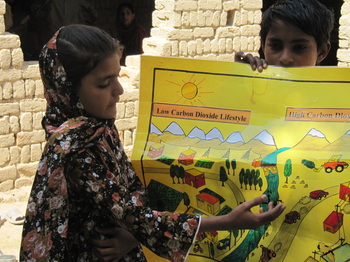
After the floods in Sindh in 2010 and 2011, many of the villages PEP works in were destroyed or damaged. Disaster Risk Reduction (DRR) education teaches students how they might be better prepared when the monsoon rains come again! Children learn about climate adaption, planting trees, what to do in emergencies, and how to strengthen their homes so they won't be as damaged in future floods. In response to DRR training, communities have raised the levels of the school and their homes, created disaster plans for their families, and discussed community solutions for future disasters.

